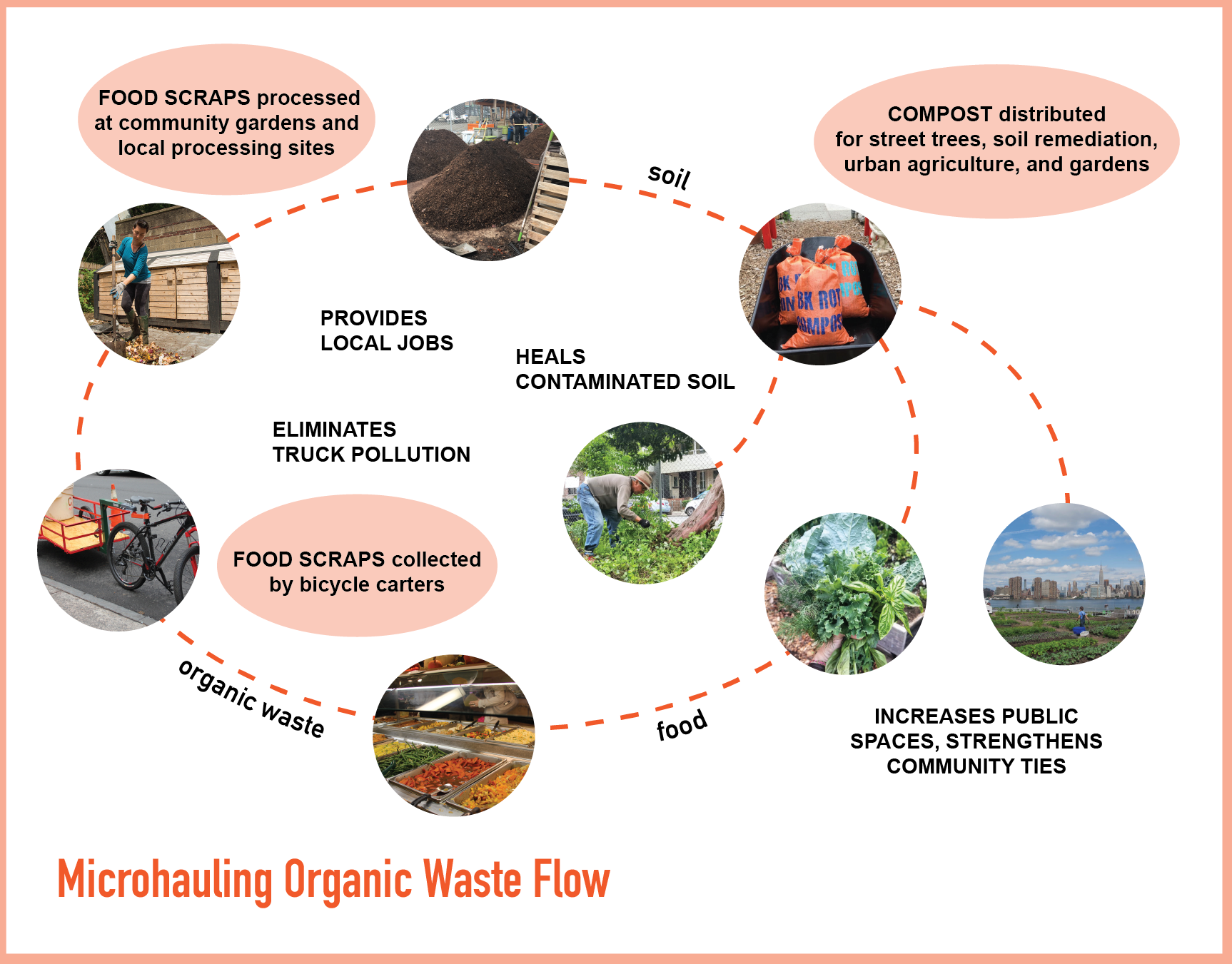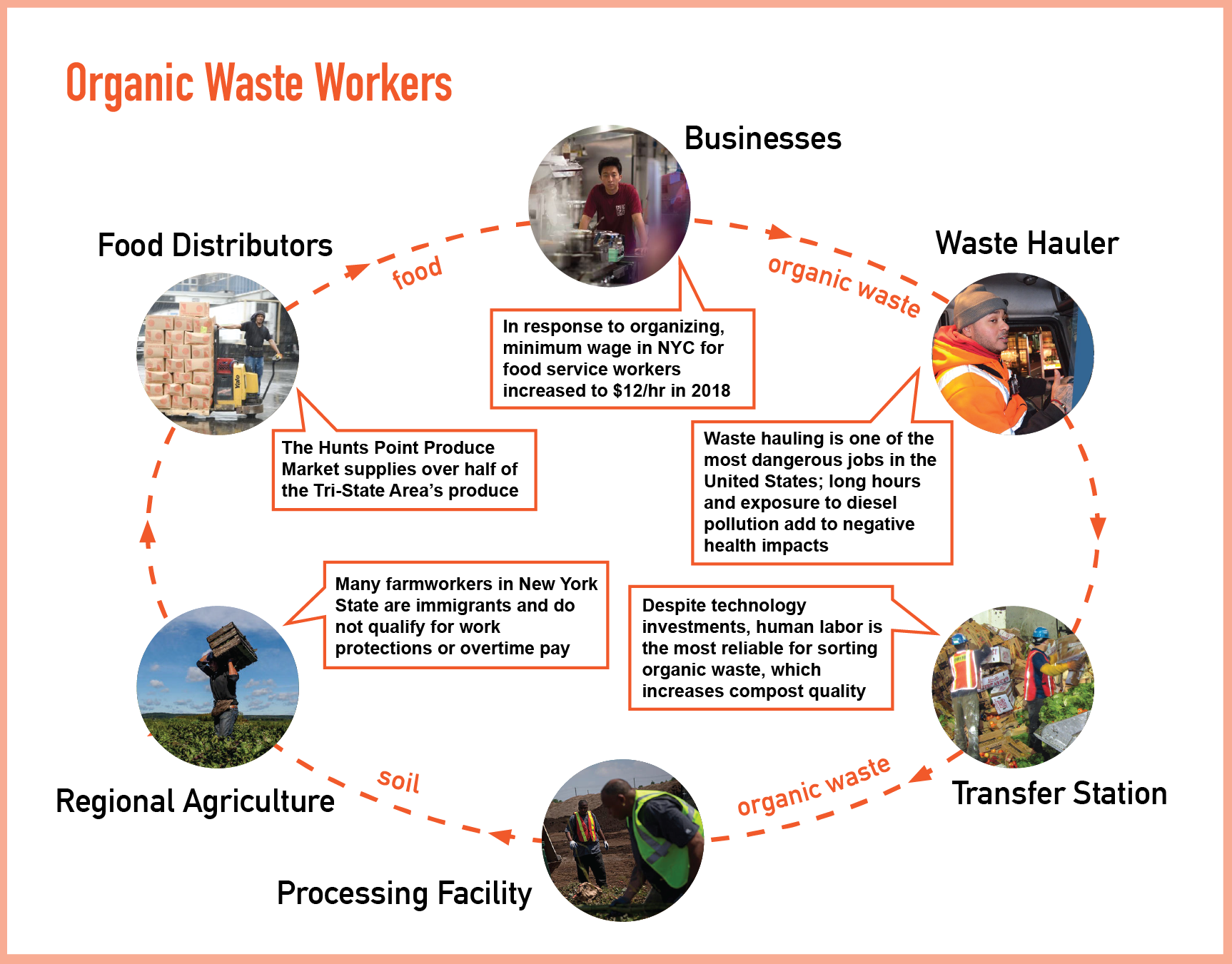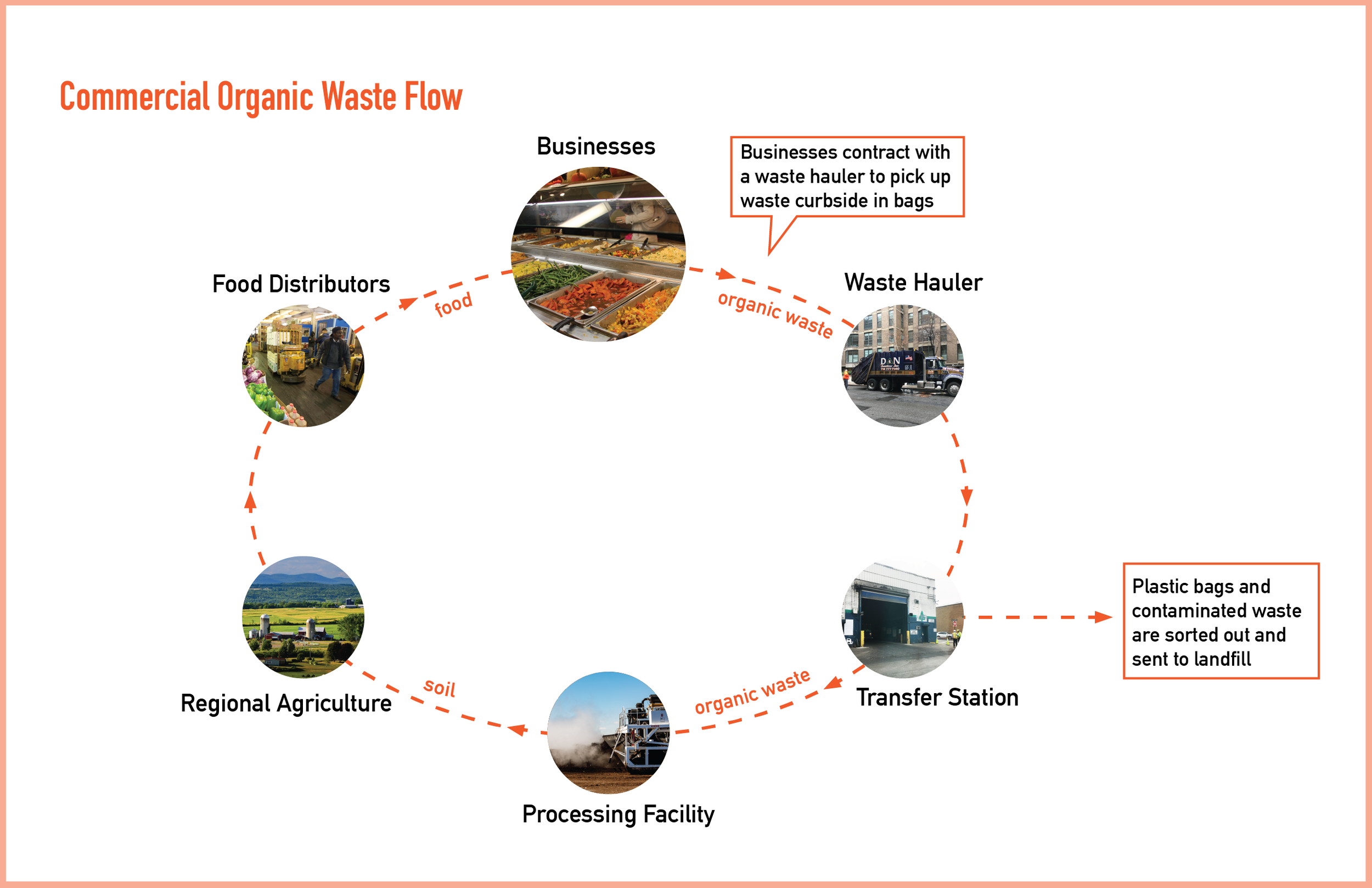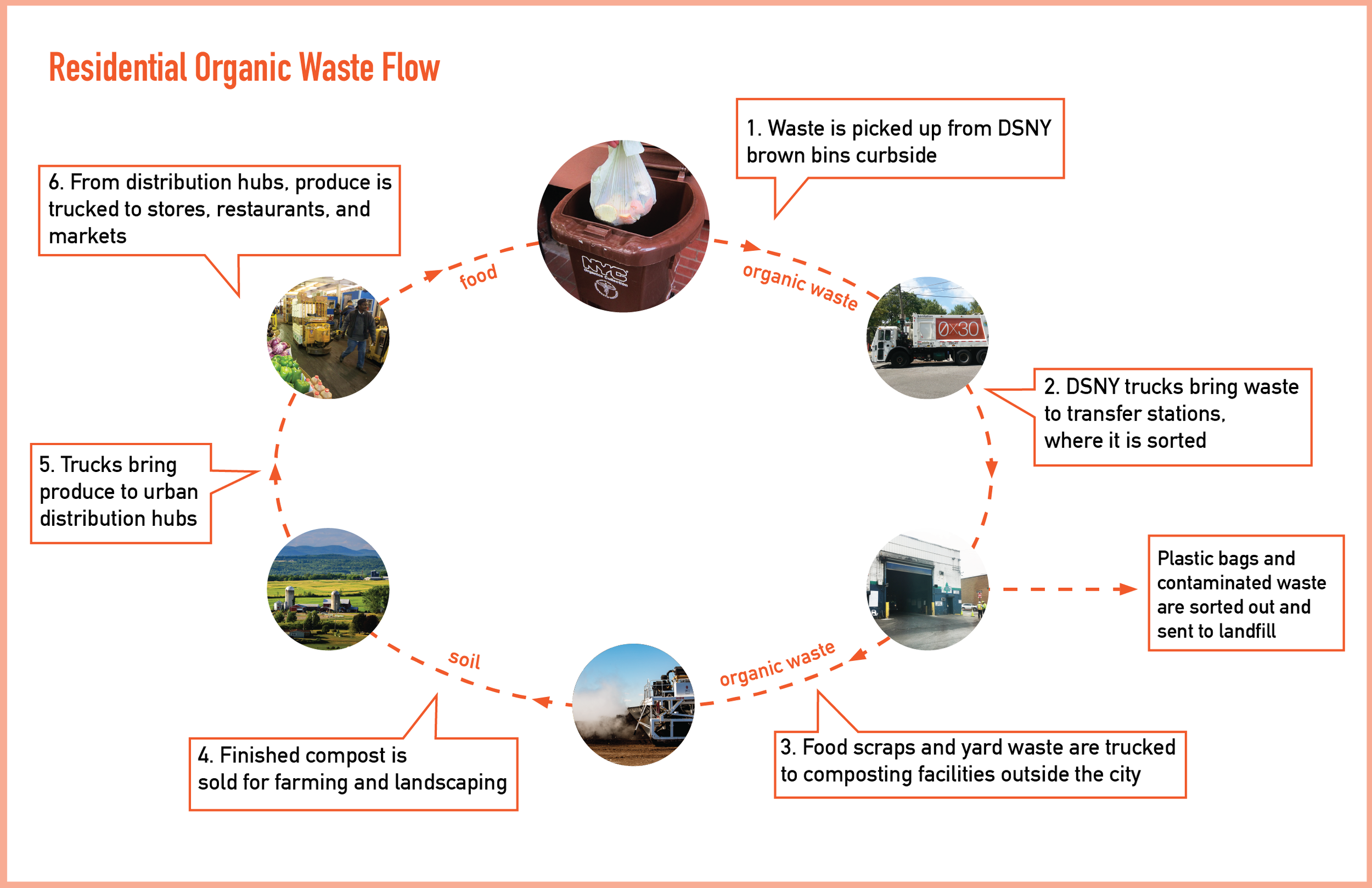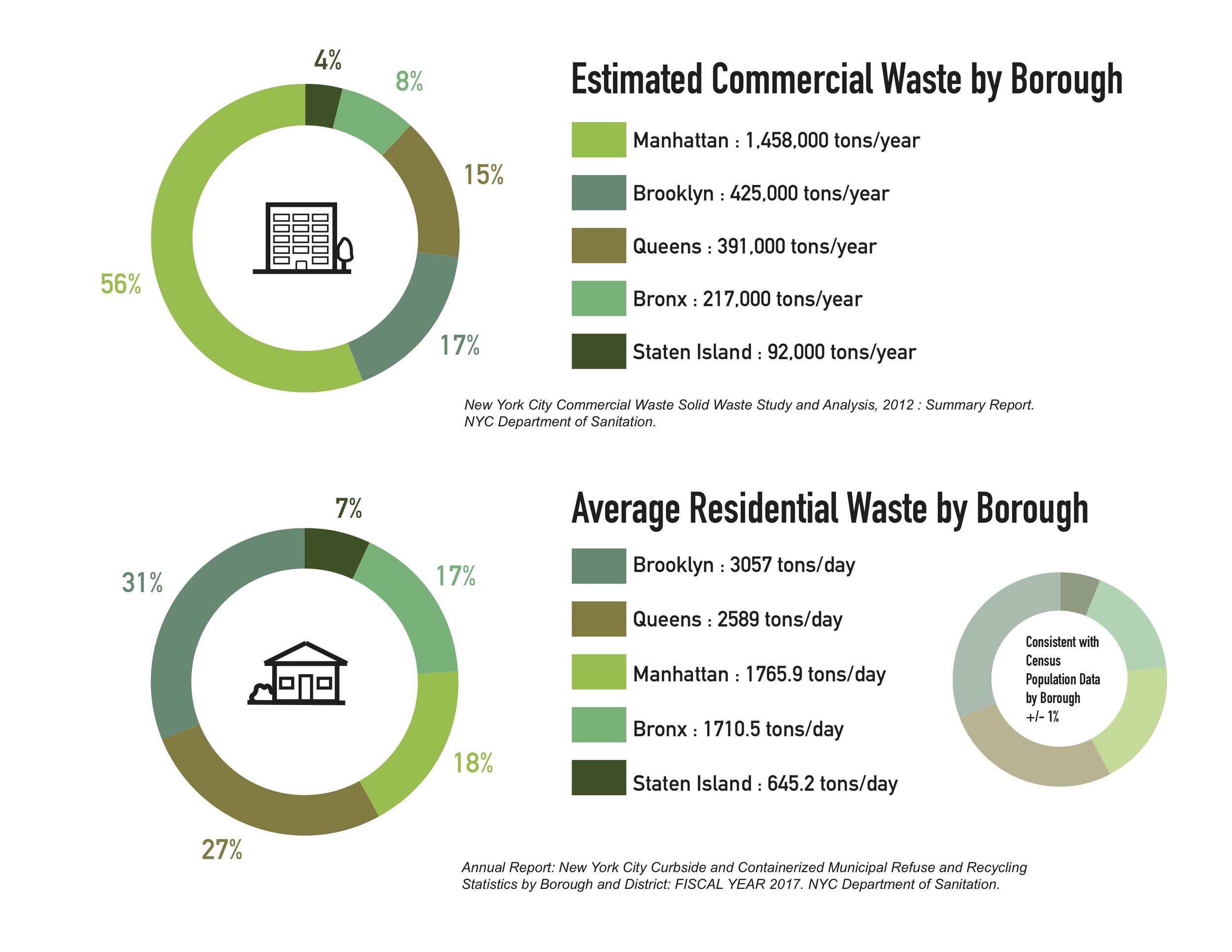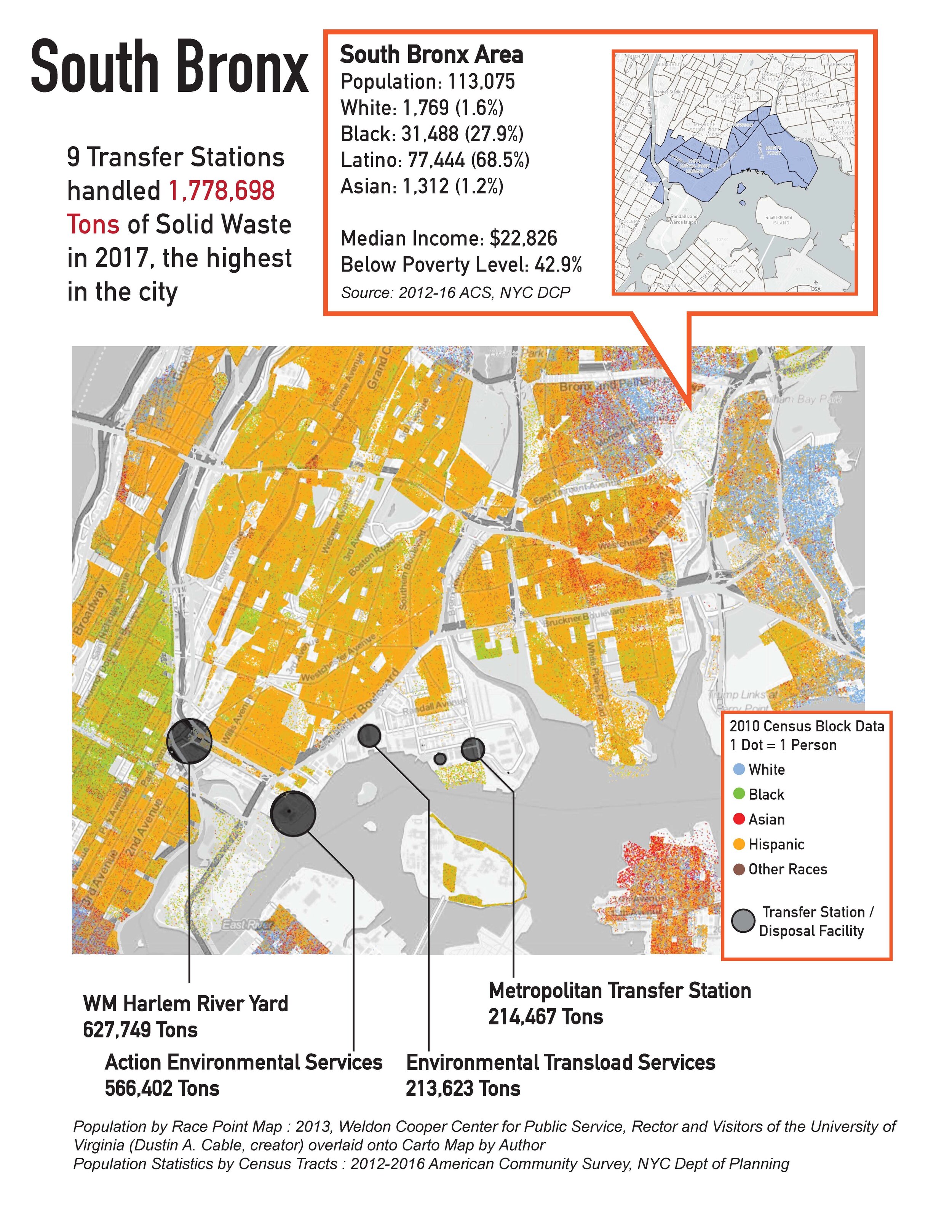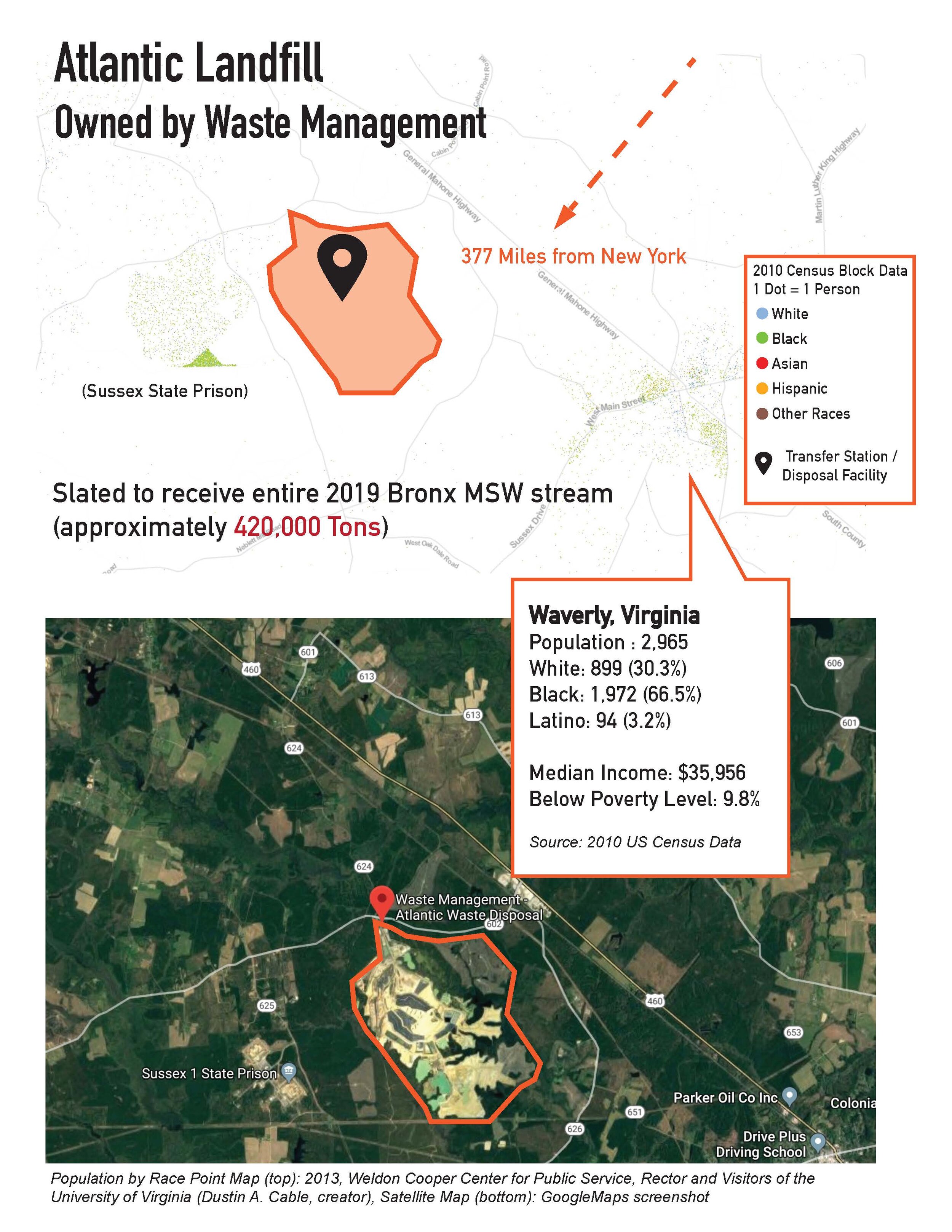Exporting Accountability: Injustice in NYC Waste Flows and the Promise of Community-led Composting
Research completed on composting and organic waste recycling in New York City and the ethical, environmental, and social effects of a system of waste export, in pursuit of a Masters in Theories of Urban Practice at Parsons/The New School, 2018.
Through an inherited system designed to export waste outside of the city, New York City externalizes the costs of waste onto communities and the ecosystem, with the burden distributed disproportionately along lines of race and class. Commercial and municipal haulers bring waste to transfer stations concentrated in low-income communities and communities of color, who suffer from diesel exhaust, noise, and the injustice of being dumped on by the city at large. From here, waste is exported to towns up to 600 miles away to be landfilled and incinerated, wasting valuable resources and polluting the air, land, and water. Where and how this waste travels is shaped by a legacy of racial zoning and municipal disregard. While the city calls for a more sustainable and equitable system, it continues to make long term contracts for solid waste export with large waste management companies. Without addressing this incongruency, systems of exporting waste and collecting and processing organics run the risk of continuing to reproduce this inequity.
This research seeks to honor and highlight the history of low-income communities of color fighting for environmental justice in New York, while championing present efforts at the intersection of social justice and sustainability; it does so by investigating environmental justice campaigns, federal regulations, and city policies that created the present system, as well as the efforts in community gardens, urban farms, and other public spaces that have developed creative methods and technical training programs to collect and process organic waste into compost, which in turn supports soil and neighborhood health. The models emerging – particularly micro-hauling by bicycle and creating local composting initiatives that prioritize youth of color, who are historically excluded from conversations on land-use and environmentalism – promise a way forward with less fossil fuels and pollution in low-income communities, local employment in safe, skilled jobs, and the opportunity for more waste equity between neighborhoods, boroughs, and municipalities. This model needs to work alongside municipal, state, and federal regulations to confront an economy of endless growth on a finite planet, eliminate the production of toxic materials and disposable packaging, and hold industry accountable for the waste they produce. In tandem with these efforts, composting organic waste locally can heal our contaminated urban soils and support regional agriculture, a necessary step in making a truly sustainable and equitable society. Read the full report here.
NYC Solid Waste Transfer Stations, by tonnage collected in 2017. Neighborhoods with disproportionate burden of waste infrastructure highlighted.


